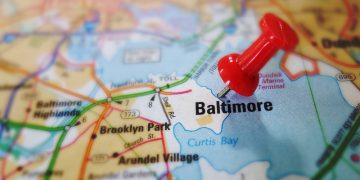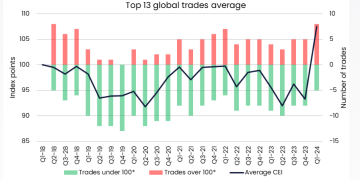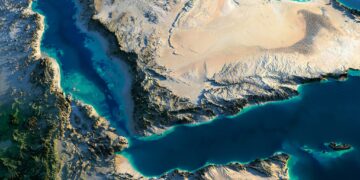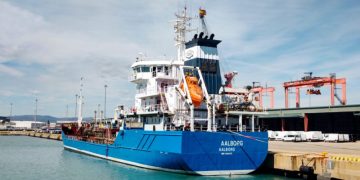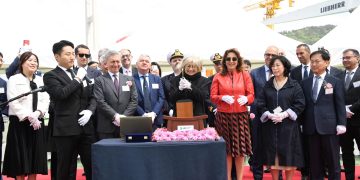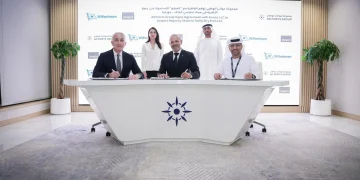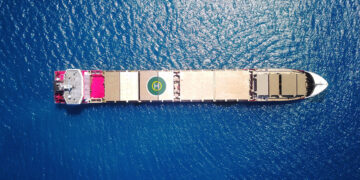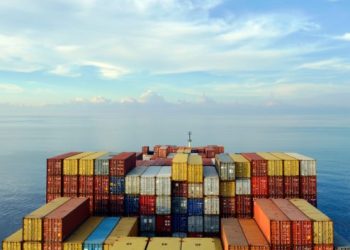In 2022, nine flag states have already joined a relatively new standards and safety regime aiming to shape the future of training for autonomous shipping globally, proving that, in the current landscape of growing automation, the human factor remains critical.
MASSPeople: The human factor in ship autonomy
The Maritime Autonomous Surface Ships (MASS) International Training Standards working group, more commonly known as MASSPeople, was launched in early 2021 aiming to share in the challenge of developing world-class training and competency standards for the maritime workforce of tomorrow.
The working group, founded and chaired by geodata specialist Fugro with support from SeaBot Maritime, has brought together multiple national maritime authorities from the Netherlands, United Kingdom, Norway, Belgium, Denmark, France, New Zealand, Italy and Poland, which is considered as a key way for driving the conversation to the highest regulatory tables with the aim of aligning international standards and enabling MASS operators.
The introduction of remote and autonomous technology has brought new ways of working to the maritime sector. This is why the aim of MASSPeople is to explore the human dimension of remote and autonomously enabled ships. Overall, the main task of the initiative is to work to develop new job profiles for the people involved in ensuring the safe operation of MASS.
ICYMI: 10 + 1 developments on autonomous ships in 2022
- September 2022: DNV signs an MoU with Hyundai Heavy Industries (HHI), AVIKUS and LISCR on a joint study to deploy autonomous navigation systems onboard ships to increase technology uptake by the industry and flag states. The Hyundai intelligent Navigation Assistant System (HiNAS 2.0) is an AI-based navigation solution that covers all steps for voyage from detection to situation analysis, planning and control.
- August 2022: Korean Register (KR) signs an MoU with HHI and its subsidiary Avikus as well as the Liberian Registry (LISCR) to commercialize HiNAS 2.0 as an autonomous navigation technology.
- June 2022: The unmanned Mayflower Autonomous Ship (MAS) is arriving in Plymouth, Massachusetts, becoming the largest uncrewed vessel to complete the trans-Atlantic crossing and marking a milestone in the development of autonomous technologies.
- June 2022: Norwegian state enterprise ENOVA approves a NOK150 million (€15M) fund from the SeaShuttle, a project to build two hydrogen-powered, remotely controlled and autonomous-ready containerships for delivery by 2025.
- May 2022: The Plymouth Marine Laboratory starts developing the first long-range autonomous research vessel in the world, the Oceanus, expected to be 24 m long, with a beam of 3.5 m.
- May 2022: CSSC Huangpu Wenchong claims launch the world’s first ship with an intelligent unmanned system.
- April 2022: Norway celebrates the christening of Yara Birkeland, the world’s first electric, autonomous container vessel.
- April 2022: China announces operation of Zhi Fei, what it claims to be the world’s first autonomous, electric container feeder ship into commercial service.
- April 2022: ABS grants autonomous notation to Keppel O&M’s ‘Maju 510’, the first tug in South Asia that can be remotely operated by joystick control.
- February 2022: The Japanese container ship ‘Suzaku’ is retrofitted for autonomous shipping as part of the Designing the Future of Full Autonomous Ships (DFFAS) project.
- February 2022: MOL completes a successful sea trial of autonomous sailing using a large commercial coastal car ferry, in a voyage from the Tomakomai Port to the Oarai Port, Japan. The trial takes place as part of the Nippon Foundation’s MEGURI2040 unmanned ship project.
Ship autonomy in the near future
Even if technology has already reached the level needed for gradual integration of autonomous ships, regulation will need more time due to a combination of slow procedures and the international nature of the industry which requires a unified approach. Earlier in September, a joint IMO working group agreed on a Roadmap for developing a goal-based instrument regulating the operation of maritime autonomous surface ships (MASS). As a first step, the roadmap would be in the form of a non-mandatory Code for adoption in the second half of 2024, while a mandatory MASS Code is to be developed thereafter for entry into force on the 1st of January 2028.
Amid a slow regulatory framework, a critical way forward for the gradual integration of automation in shipping operations seems to lie in the concept of human-autonomy collaboration, which describes the joint performance of the human operation in conjunction with an autonomous system in order to achieve a goal. Research shows that human–autonomy collaboration for marine systems can be improved both through better human training and through improved reliability of those autonomous systems.
Training will change more rapidly, as technology seems to be in advance of the competency trainings of the mariners onboard. I think there’s a gap there that needs to be bridged and crew to be ahead of that particular curve
…said Capt. John Dolan, Deputy Director, Loss Prevention, Standard Club.
The different levels of autonomy, as defined by IMO, mean that, in the near future, there will be many different implementations with different levels of autonomy that will be application specific, said experts Nikolaos P. Ventikos & Konstantinos Louzis from NTUA to SAFETY4SEA. For example, automation will be possibly differently implemented in short-sea shipping, where risks are lower, compared to ocean-going shipping.
Conventional ships will most likely co-exist with autonomous ships, but all types of vessels will need to operate in a more interconnected and interdependent maritime transport landscape
…they argued.




